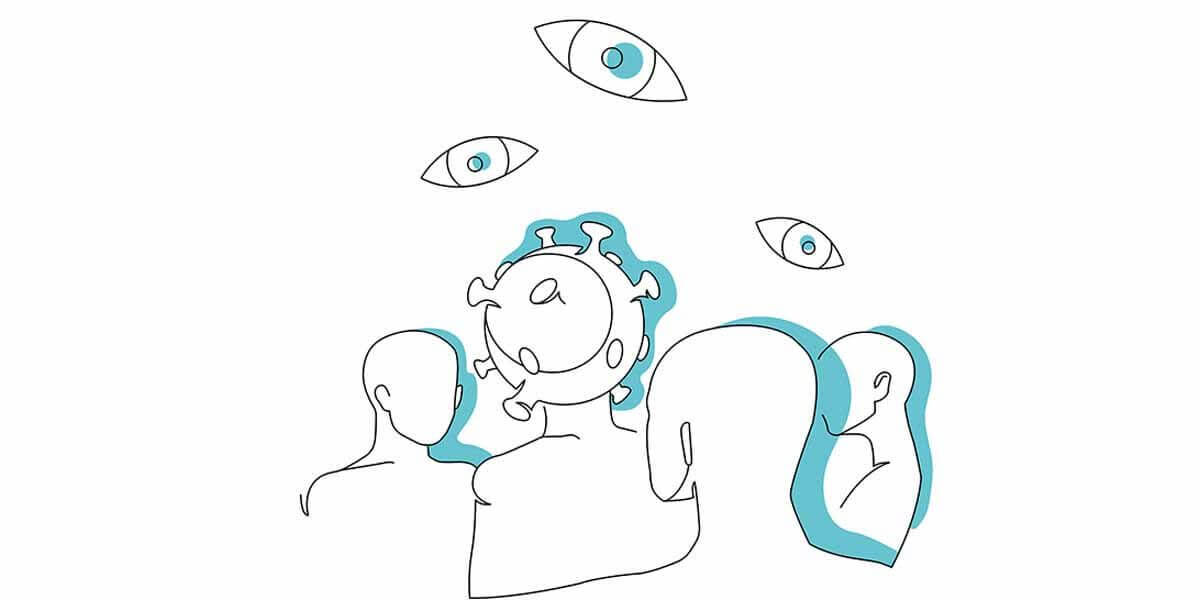
Now more than ever, the news has been inundated with privacy concerns and red flags that have been raised as the world population has become increasingly reliant on the internet to conduct our daily affairs. There are numerous recent examples of the consequences of overlooked privacy risks. For example, the recent uptick in incidents of unwanted guests who sneak into Zoom conferences, known as ‘zoombombing’, or the increase in phishing attempts and online scams. Concerns about how data is being handled by companies and governments are also increasingly relevant as many countries consider the use of location tracking apps to aid in the containment of the coronavirus.
To add to the ongoing discussion about digital privacy in the United States, the Pew Research Center has conducted a series of surveys related to opinions on digital privacy including data and surveillance concerns. In order to help clarify the results of this research, Spy-Fy has created a list of the top 10 takeaways from the Pew Research studies.
In an early April survey, 60% of Americans said that if the U.S. government used location tracking via people’s cellphones it would “not make much of a difference”. 16% said that location tracking would “help a lot” while 22% said it would “help a little”. Note that these results relate to the perceived effectiveness of the location tracking approach, not whether or not it would be acceptable. In the larger debate about whether or not location tracking apps should be used, this is a key point. If this strategy has not been proven to be effective, then is it acceptable to use location tracking considering the privacy consequences that may follow?
This research focus was split into three situations: namely, is it acceptable to track those who have tested positive for the coronavirus (52% acceptable; 48% unacceptable); is it acceptable to track those who have been in contact with those who have tested positive for the coronavirus (45% acceptable; 54% unacceptable); and is it acceptable to use location tracking to ensure the public is following recommended social distancing measures (37% acceptable; 62% unacceptable).

Prior to the coronavirus, a June 2019 survey found that 70% of Americans felt their personal data was more vulnerable than it had been 5 years before. Imagine how this statistic may have changed in light of the recent surge in remote work.
Americans were surveyed to assess their concern about data collection from companies and the government. 79% of Americans were concerned about how companies use their data, and 64% were concerned about how the government uses their data. In terms of how personal data is used, only 4% of Americans claimed to understand how the data is used by the government and 6% of Americans claimed to understand how companies use their data.
In addition to being concerned about the way in which their data is being used, 72% of Americans believe that companies are likely tracking almost every move made online. Interestingly, only half of Americans felt this way about the government tracking their online activity. This survey was conducted in June 2019. Perhaps this will change if location tracking is used to fight the spread of COVID-19, as this may increase the government’s access to personal data.

Most Americans who participated in the June 2019 survey did not believe that they benefited from data collection by companies (72%) or by the government (76%). In fact, most felt that the risks posed by data collection were not worth the benefits (81% felt this way about data collected by companies; 66% felt this way about data collected by the government).
This right refers to the ability to delete personal information that has been collected and is accessible online. Americans were asked about their support for this right regarding medical data as part of a June 2019 survey. 69% felt that they should have the right to have medical information about them deleted from online searches/databases. This right is increasingly relevant in the current situation with the coronavirus.
Should Americans have the right to have personal information collected to help stop the spread of the coronavirus deleted at some later point when the outbreak has been contained?
About 75% of Americans felt that the government should increase the regulation/laws related to how companies can use personal data collected from their customers. In Europe, the General Data Protection Regulation (GDPR) has created some clarity in terms of how companies can collect and use data. However, although individual states like California are working on privacy laws, there isn’t a nationwide regulation in the U.S.
About half of Americans surveyed said that they didn’t use a product/service because they were concerned about the extent of personal information that would be collected about them, especially when it comes to websites. This finding may indicate the importance of clear privacy policies, especially if Americans claim that their decision to use a product or service is partly based on their understanding of data handling/collection.
Americans were tested on their knowledge of key digital privacy concepts. Only 30% of respondents knew that URLs beginning with “https://” indicate that a site is encrypted. Furthermore, only 28% of participants could identify examples of 2FA (two-factor authentication). With a recent increase in digital privacy problems such as email phishing attempts and other hacking attacks during the COVID-19 outbreak, these results may highlight the need to educate Americans on these types of key digital privacy concepts so that personal information is protected and secure.
In the best of times and worst of times, your digital privacy matters. These results summarized from the Pew Research Center reflects the need for increased privacy awareness in the United States. Many decisions are being made now that may have unforeseen consequences on the future of data protection and collection in the United States by the government and by companies. Americans seem skeptical about the effectiveness of location tracking via cellphones for fighting the spread of COVID-19 and there isn’t a clear consensus on the acceptability of using this method amongst the American public. There is a clear lack of understanding of how data is being handled and collected by both companies and the government, and who really benefits from this data collection. Education is necessary to help clarify important digital privacy concepts so that Americans can make informed decisions about their own personal privacy.
Source:
At Spy-Fy, we value your digital privacy. That’s why we make premium privacy gadgets to help you stay protected! Be the agent of your own privacy.